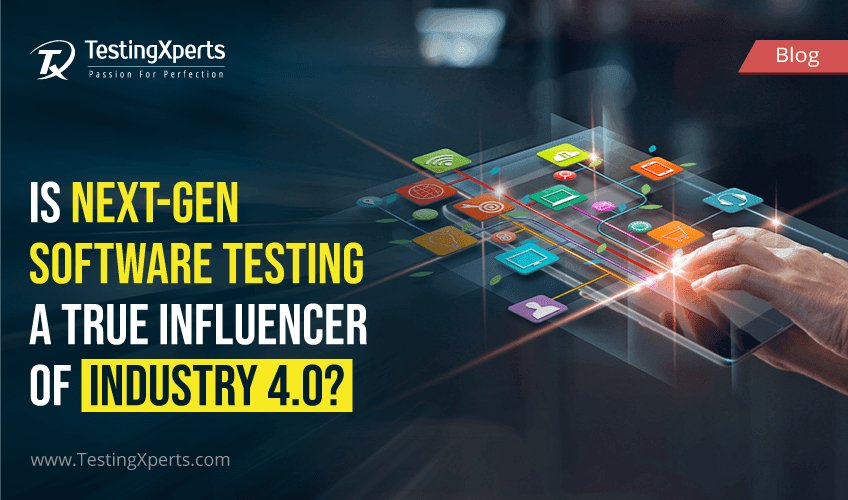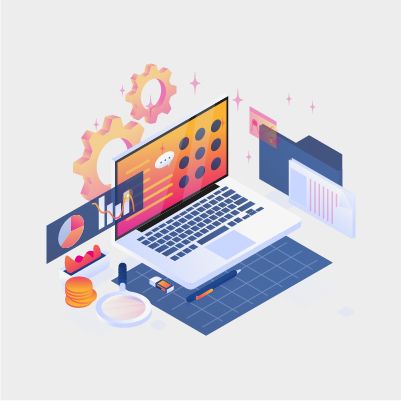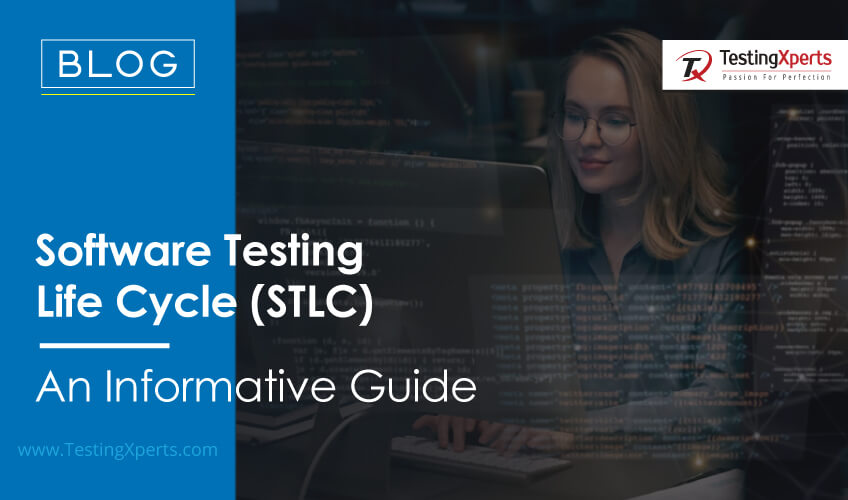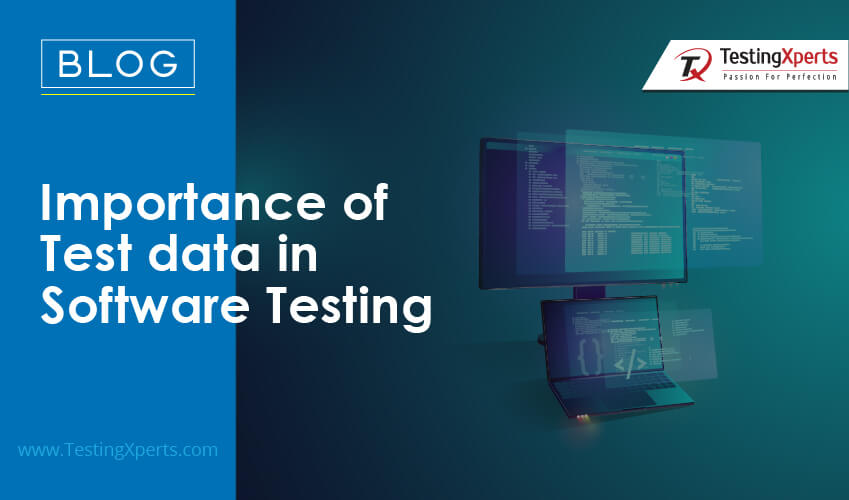
For Industry 4.0, disruption is the best word to define it with significant factors of dominance around Cyber-Physical Systems (CPS), Internet of Things (IoT), Industrial Internet of Things (IIoT), Cloud Computing, Cognitive Computing and Artificial Intelligence (AI). This fourth industrial revolution is also characterized by IoT and Internet of Services (IoS) concepts into digital manufacturing which enables smart factories with integrated production systems to be well placed in digital ecosystems. software testing methods
Contents
- Role of Software Testing in Industry 4.0
- Next-Gen Software Testing Methods to Dominate Industry 4.0
- IoT Testing
- Big data testing
- Adoption of AI in Testing
- Crowd Testing
- What are the benefits for Enterprises with the Industry 4.0 in Place?
- Conclusion
According to the market research report, Industry 4.0 Market, the market was earlier valued at USD 66.67 Billion in 2016 and is expected to reach USD 152.31 Billion by 2022, at a CAGR of 14.72% between 2017 and 2022.”
Significantly, the major innovation lies in CPS enabling new means of communication among devices, production assets, and information systems to work in an orchestrated and decentralized way in real-time. As innovation continues to occur at rocket speed, enterprise CXOs continue to face issues with the flexibility of products and compatibility issues of devices, along with various other limitations to enable stable and high-performing IoT connected systems. In order to overcome these challenges of Industry 4.0, the software testing process comes into place!
Role of Software Testing in Industry 4.0
It is a facet of testing the world of connectedness with IoT gadgets, virtual reality, wearables with real-time associations along with testing of the intervened digital ecosystems. Software testing involves the process by which scalability, flexibility, and tangibility of the connected devices is achieved.
The functionality and usability of these connected devices should be tested thoroughly to ensure effective working in the digital ecosystem. Extensive testing is fundamental to ensure successful IoT product launches into the market that delivers value.
Moreover, these IoT devices are connected to various apps on smartphones, tablets or laptops; each with different operating systems, versions and different devices for which crowd testing can be a good fit. Some of the other critical next-gen software testing methods include Smart wearables testing, IoT testing, Big Data testing, and usage of AI in testing. A recent report by Markets and Markets states that “The IoT testing market size is estimated to grow from USD 302.9 Million in 2016 to USD 1,378.5 Million by 2021, at a Compound Annual Growth Rate (CAGR) of 35.4% from 2016 to 2021.”
In addition, the current business trend shows constant upgrading and modernizing of businesses to provide the best products which have a wide scope for the future. And, to reach this goal, the best way is to perform robust and continuous software testing. End-to-end software testing helps enterprises to be flexible to face the challenges and respond to the ever-changing market needs. This effective software testing can be achieved by embracing the below listed next-gen software testing methods that are bound to dominate the industry 4.0.
Next-Gen Software Testing Methods to Dominate Industry 4.0

1. IoT Testing:
The IoT ecosystem encompasses mainstream applications including home automation, smart appliances, wearables, health and fitness apps and more. The industrial IoT (IIoT) embraces the same concepts of Industry 4.0 and includes the integration of some of the more complex devices and systems with networked sensors and software. Evidently, IoT testing involves various types of tests across all system components.
The various types of IoT testing required to enable scalability, performance, and security of smart (connected) applications involves Edge testing, Protocol and device interoperability testing, Security and privacy testing, network impact testing, performance, and real-time testing, and end-user application testing. IoT testing also involves the performance testing of software-hardware components of devices, Compatibility testing across multiple domains, user-experience testing and exploratory testing.
2.Big data testing:
With the influx of millions of connected devices, IoT triggers a massive inflow of Big data. The data consists of structured data, unstructured data, images, contextual data, and real-time data. Big data should be augmented to effectively store, manage and extract value from continuous streams of IoT sensors data.
Sensors, in reality, send gigabytes of data that can be used by big data technologies to process it and deduce valuable insights to help in quick decision making. Therefore, it has become a clearneed to test big data and gain insights from patterns to understand data behavior.
3. Adoption of AI in Testing:
The usage of AI technologies like deep learning and machine learning algorithms help derive insights rapidly from IoT connected devices. The IoT continues to proliferate as connected smart devices become critical for individuals and businesses. The IoT market is projected to be worth $1,490.31 billion by 2024, this explosive growth is set to continue more in the coming years. IoT allows the flow of data between devices, and AI can be helpful.
Evidently, as much of the IoT application is composed of services outside the control of the application, an effective way of test automation strategy is to embrace AI and ML (Machine learning). It requires intelligent models to auto-generate tests using AI and ML that allow teams to analyze data from testing and to identify patterns. Moreover, AI is expected to be the key enabler to the growth of the future IoT revolution with digital ecosystems all around and is expected to take it to a new level.
4. Crowd Testing:
Crowd testing is an effective technique that is applied to a system under test. It basically involves the testing of software on a large number of devices, browsers, and operating systems and significantly, all tests are executed in parallel by different testers. This sort of testing not only involves testing the software configurations, but it also involves the APIs testing with other connected devices. Crowd testing tests on various markets, regions and on a variety of devices which helps to get an understanding of the functionality and usability of the system under test in various conditions.
Generally, in crowd testing the client, the organizer of the test, and a pool of crowd testers are involved. Today, crowd testing is gaining importance in the world of connected devices esp Industry 4.0 with a range of benefits. The benefits with Crowd testing are huge, as it helps to coordinate with the testers on different environments, on various languages, and with different professionals having access to various devices across regions.
What are the benefits for Enterprises with the Industry 4.0 in Place?
Improves real-time Decision making:
By updating to industry 4.0, enterprises can improve their real-time decision making by collating, comprehending, and streamlining the data from various sources, such as from network sensors, customer-management systems, production equipment, etc. to efficiently track them and utilize in the best possible manner to deliver good insights to the management.
Improves and Eases Routine Tasks:
With the help of AI and ML algorithms in place along with IoT in today’s industry 4.0, it becomes easier to interact and perform tasks better with smart devices. This way of smart devices increases productivity and ensures better life style and also improves user experience by easing and simplifying routine tasks.
Enhances connectivity across departments:
For any enterprise, working in-collaboration is an important need to meet the product standards. This can be exclusively achieved with Industry 4.0, as the universal data-integration networks help to increase the connection among suppliers, departments, and partners. This will effectively improve communication between the stakeholders in a large way.
Accelerates development and product delivery:
The IoT provides a high-quality environment where any development from any industrial environment can be achieved to ensure faster release to production. The smart machines not only act as the best resources, but they are excellent to analyze and capture the data than humans. These industry 4.0 practices will effectively drive faster business decisions with more accuracy and also ensures better and quicker product delivery.
Helps to understand Customers Better:
Data analytics usage in industry 4.0 effectively helps companies to understand more about what customers expect. This will help the enterprises to develop the product as per the customer needs and strengthen customer interactions. As the products get developed as per the customer requirements, this will effectively help the enterprises to improve their customer base.
Conclusion
Significantly, in the coming years with industry 4.0 invasion, software testing will continue to play a significant role. There is an enduring need for all these digital ecosystems to work seamlessly to deliver true benefits. As the digital ecosystems are widespread, they need an elaborate IoT Testing, Big Data Testing, Testing with AI, and Crowd Testing methodologies, for which a next-gen Specialist QA services provider should be partnered to thoroughly test Industry 4.0 applications.
Discover more
Get in Touch
Stay Updated
Subscribe for more info




